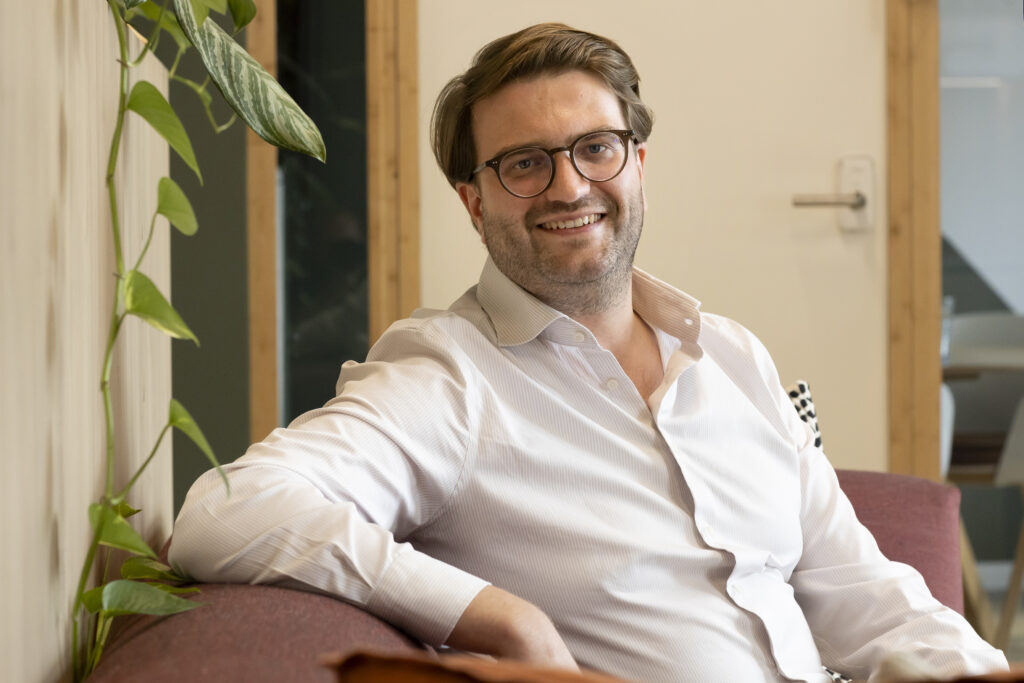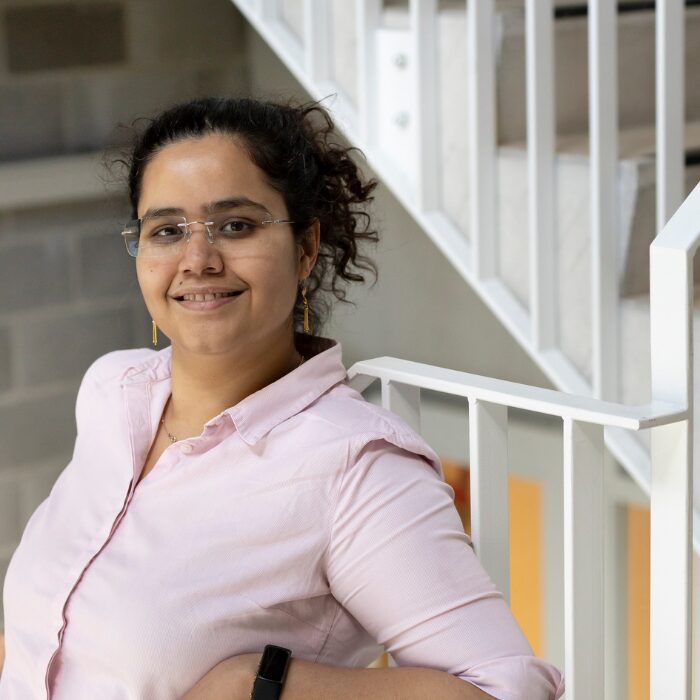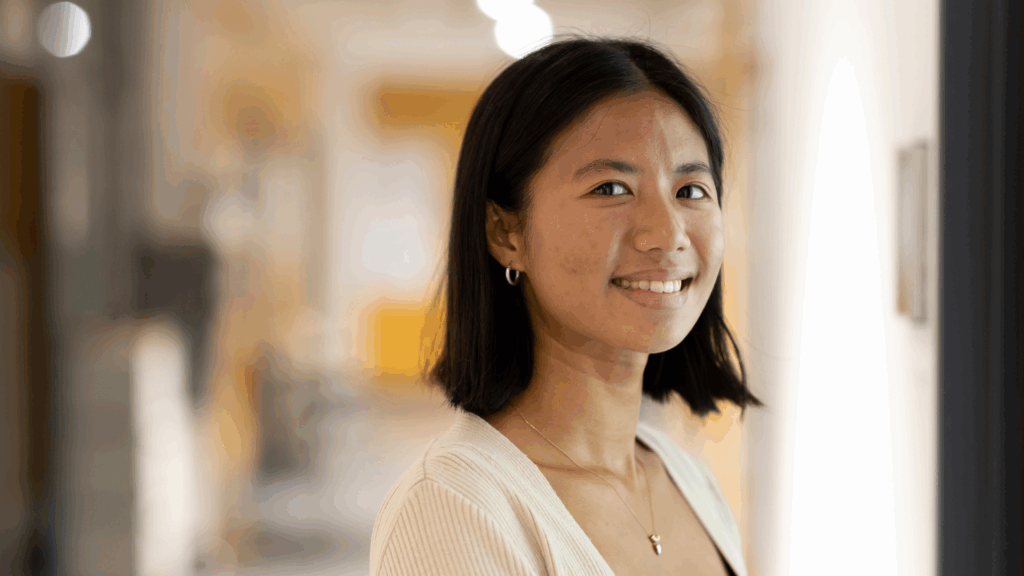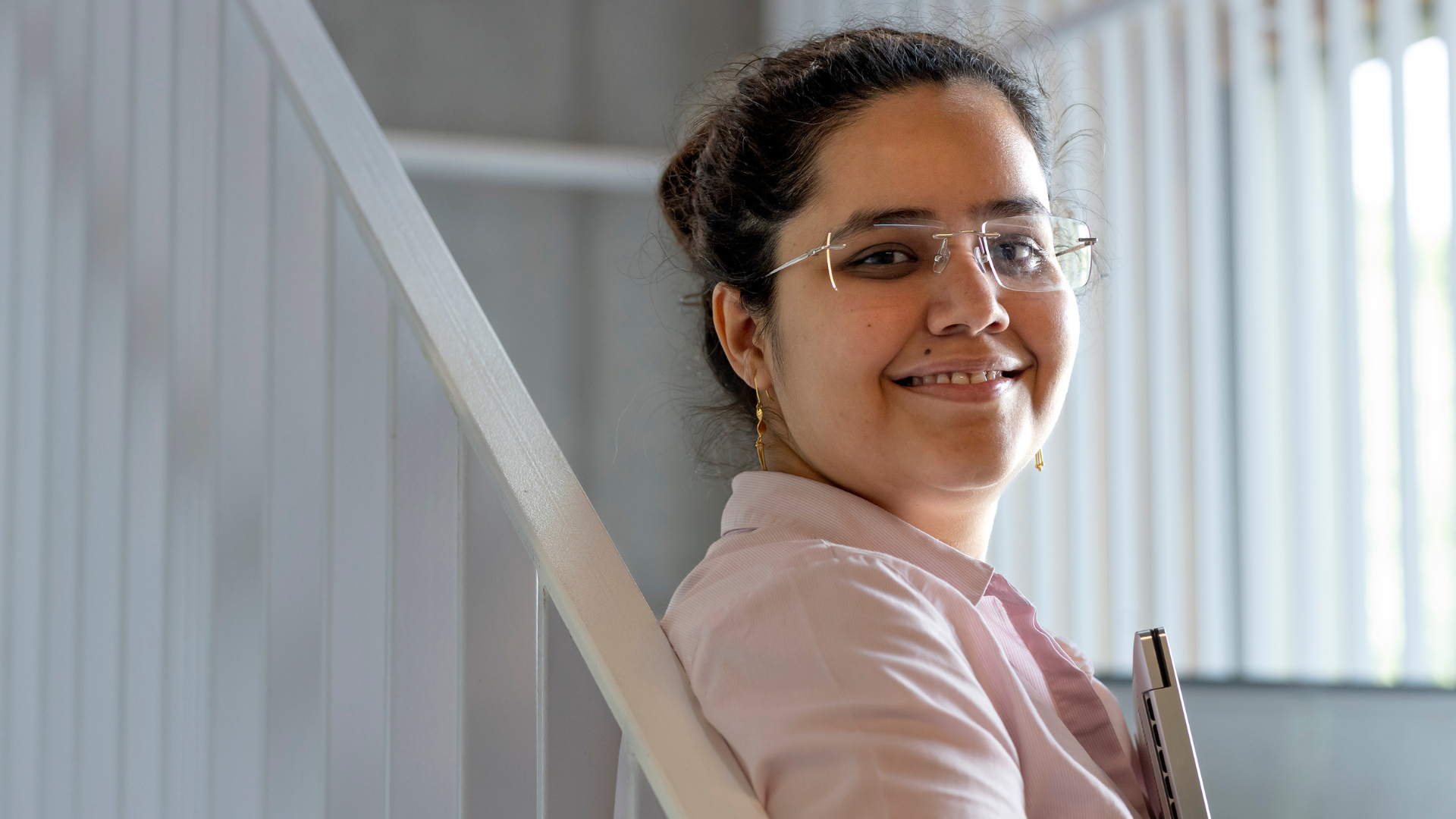UAntwerp has more than 2,000 PhD researchers. What drives them? Where do they feel their support comes from? And isn’t their work lonely sometimes? We invited three of them to tell us how it really is.
Tijmen van Kempen, Business and Economics
After studying economics in Tilburg and doing an internship in the Philippines, Tijmen van Kempen was at a crossroads. He was particularly fascinated by general economics, but didn’t see many jobs in that field. ‘That’s how I landed on a PhD. This brought together a lot of things I liked: data, science, discussing, reading, to name a few. In 2021, I started a PhD on the EPC rating of homes. Based on data and numerical analysis, we examine whether this EPC policy is having the desired effect.

Content-wise, I find my research really interesting – so much so that it doesn’t feel like work. At the start, some colleagues said, “It’ll get tough eventually.” But I’m still waiting for that to happen (laughs). Especially in the beginning, I benefited a lot from the Young Research Network, where I was project chair for two years. The tips and tricks from fellow PhD students were very helpful.
Talking to an audience
I enjoy talking about my research to a broad audience. In 2024, I took part in the PRESS>SPEAK competition and also gave a presentation on Science Day. What’s fun about my PhD is that everyone knows the topic and has an opinion about it (laughs). I like encouraging people to think about it from different perspectives.
It didn’t take me long to find my bearings in Antwerp. Just by knowing one colleague, I became part of his circle of friends. I’m not sure it would’ve been that easy in the Netherlands. I did, however, have to get used to how indirect Flemish people can be. It sometimes takes a while to figure out what they really mean. I make a point of working on campus every day because I find contact with colleagues so important. The shared kitchen in Building B is a big plus, because it allows you to make friends and meet colleagues from all departments.’
Stuti Pathak, Applied Engineering
Europe, the United States or the UK – it didn’t matter to Stuti Pathak, as long as she could realise her dream of doing an international PhD. The Indian researcher studied physics in her home country and started a PhD at the Faculty of Applied Engineering in 2022. ‘My research focuses on machine learning. Knowing that our project will ultimately result in a practical application is a major motivation for me.
The international collaboration is also something I really enjoy. We sometimes invite foreign colleagues to give seminars, and I’ve already attended conferences in Portugal and the UK. Later this year I’ll be heading to the United States. In communicating about your project, you sometimes get surprising feedback that helps you move forward with a problem. And through networking, I’ve already been able to set up some interesting joint projects.
Difficult start
Antwerp’s been fun so far, although the start wasn’t exactly easy. Finding an apartment, for instance, was really difficult. My supervisor really helped me with that, as well as with other practical matters.

“Socially, I didn’t immediately find my feet. But thanks to MONDO I met great people. Now I have plenty of friends.”
– Stuti Pathak
Socially, too, I didn’t immediately find my feet: it was hard at first to build a circle of friends. Luckily, the activities organised by MONDO really helped: on outings I met great people and discovered what Antwerp has to offer. By now I’ve made plenty of friends, including quite a few colleagues. It took me a year to feel fully settled here, which is a long time, but today I’m happy with the path I’ve taken. Having to find my own way taught me a lot and made me much more independent.’
Natwarin Janssens, Nursing and Midwifery
After completing her Master in Health Promotion, Natwarin Janssens was given the chance to do a PhD at the Department of Nursing and Midwifery. She began in October 2022. ‘My doctorate is part of the COCCOS study. We’re researching a care pathway designed to smooth the transition from paediatrics to adult medicine. At the moment, we’re testing the pathway, which means I regularly have to be at the university hospitals of Antwerp and Ghent. Since it’s a joint study programme of UAntwerp and Ghent University, I’m doing what is known as a joint PhD. If all goes well, I’ll receive a joint PhD degree from both universities next year.

Shared office
As a PhD researcher you can feel like you’re in a bubble: you’re specifically working on one topic. Luckily, I share an office with three other PhD researchers. We sometimes run into the same problems and occasionally review each other’s texts, which brings us closer together. In principle, I could often work from home, but I try to be on campus as much as possible. Once a month we meet with all the PhD students in our department. We talk about our research, but also about how we feel in our work. Whenever I have questions or issues involving my PhD, I can always rely on my supervisors; they’re very approachable.
‘You have to make sure to get out of your bubble. It’s important to be able to consult with other PhD researchers. That’s why I try to be on campus as much as I can.’
What motivates me most in this work is knowing there’s a real need for this kind of care pathway. I’ve spoken to many patients and care providers. I’ve heard numerous stories from young people who weren’t prepared for the transition to the adult ward, where the approach is inevitably less personal and consultations are shorter. That sometimes has a major impact and can even jeopardise treatment. It would be wonderful if we could change that.’


